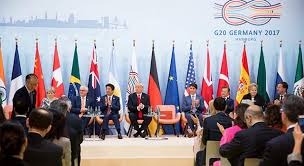The Complex Landscape of Global Politics
Global politics is a dynamic and intricate web of relationships, power dynamics, and ideologies that shape the interactions between nations on the world stage. In an interconnected world where events in one corner can have ripple effects across continents, understanding global politics is essential for navigating the complexities of our time.
At the heart of global politics are issues such as international diplomacy, trade agreements, security alliances, and human rights. Nations engage in a delicate dance of cooperation and competition as they seek to advance their interests while balancing the needs and aspirations of their citizens.
The rise of nationalist movements, the impact of climate change, and the ongoing struggle for economic equality are just a few examples of the pressing challenges that global politics must address. The decisions made by world leaders can have far-reaching consequences, affecting not only their own countries but also shaping the future of humanity as a whole.
One key aspect of global politics is the role played by international organisations such as the United Nations, NATO, and the World Trade Organization. These institutions provide a forum for dialogue, negotiation, and collaboration among nations, helping to prevent conflicts and promote peace and stability.
However, global politics is not without its complexities and controversies. Issues such as sovereignty, territorial disputes, and human rights violations often spark tensions between countries and test the limits of international cooperation. Finding common ground amid diverse perspectives and conflicting interests is a constant challenge in the world of global politics.
As we navigate the ever-changing landscape of global politics, it is crucial to remain informed, engaged, and open-minded. By understanding the forces at play and staying attuned to emerging trends and developments, we can contribute to building a more just, peaceful, and sustainable world for future generations.
5 Essential Tips for Navigating Global Politics
- Stay informed by following reputable news sources from around the world.
- Understand the historical context of international conflicts and alliances.
- Consider different perspectives and be open to diverse viewpoints on global issues.
- Engage in discussions with people from various backgrounds to gain insights into different geopolitical views.
- Support diplomacy and peaceful resolutions to international disputes.
Stay informed by following reputable news sources from around the world.
To stay informed about global politics, it is essential to follow reputable news sources from around the world. By diversifying your sources of information, you gain access to a variety of perspectives and insights that can help you develop a more comprehensive understanding of international affairs. Reputable news outlets uphold journalistic standards and provide accurate, timely reporting on key political events, trends, and developments across the globe. Keeping abreast of news from different regions can broaden your knowledge base and enable you to make informed decisions about the complex issues shaping our interconnected world.
Understand the historical context of international conflicts and alliances.
Understanding the historical context of international conflicts and alliances is crucial in deciphering the complexities of global politics. By delving into the past, we gain insights into the roots of present-day tensions and collaborations between nations. Historical events shape the trajectories of countries and influence their interactions on the world stage. Examining the historical backdrop of conflicts and alliances provides a deeper understanding of the motives, grievances, and aspirations that drive international relations, helping us navigate the intricate web of global politics with greater clarity and perspective.
Consider different perspectives and be open to diverse viewpoints on global issues.
In the realm of global politics, it is crucial to embrace a mindset that values diverse perspectives and encourages openness to varying viewpoints on international matters. By considering different angles and engaging with a range of opinions, individuals can gain a deeper understanding of complex global issues and foster constructive dialogue that leads to informed decision-making and meaningful progress on a global scale.
Engage in discussions with people from various backgrounds to gain insights into different geopolitical views.
Engaging in discussions with individuals from diverse backgrounds is a valuable tip for gaining insights into different geopolitical views. By actively listening to perspectives shaped by varying cultural, historical, and social contexts, we can broaden our understanding of global politics and appreciate the complexities that influence decision-making on the world stage. These conversations not only enrich our own knowledge but also foster mutual respect and empathy, fostering a more inclusive and informed approach to navigating the intricate landscape of international relations.
Support diplomacy and peaceful resolutions to international disputes.
Supporting diplomacy and advocating for peaceful resolutions to international disputes are crucial pillars of effective global politics. By prioritising dialogue, negotiation, and collaboration over conflict and aggression, nations can work towards resolving differences in a way that upholds mutual respect and promotes long-term stability. Diplomacy not only helps prevent armed conflicts but also fosters understanding between nations, paving the way for sustainable solutions that benefit all parties involved. Embracing diplomacy as a primary tool in addressing international disputes demonstrates a commitment to upholding peace, upholding the rule of law, and fostering a more harmonious world for all.

